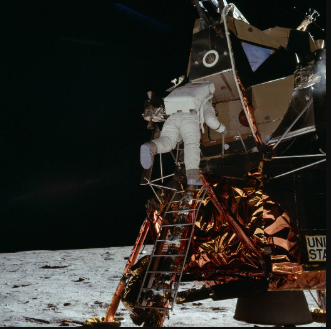Lessons From America’s Space Program

It’s been 50 years since Armstrong, Aldrin, and Collins pioneered the way to the moon. That first moon landing was the capping achievement of a nearly decade-long mission, kicked off by a simple statement in a speech by John F. Kennedy, given to Congress on May 25, 1961:
“I believe that this nation should commit itself to achieving the goal, before this decade is out, of landing a man on the moon and returning him safely to the Earth. No single space project in this period will be more impressive to mankind, or more important for the long-range exploration of space; and none will be so difficult or expensive to accomplish.”
I can’t think of a single project that would compare to this endeavor today. Those of us who grew up during this time period can often recall the enormity of what had to happen in order to accomplish this goal.
Today, we’re surrounded by technology. We take it for granted. I know many people who have severe anxiety if they can’t connect to others through their various social media channels.
In 1961, Kennedy was starting us off on a journey that required us to develop technology that didn’t even exist except in the minds of science fiction writers. Problems had to be solved that were literally life-or-death for the men selected to pilot the spacecraft. And all of this had to be done using less computing power than can be found in a cheap smartphone.
I’m happy to be able to say I was there, in front of my TV set when Apollo 11 launched. My family lived in Tampa, Florida, so when the rocket cleared the tower I ran outside and watched the tiny matchstick flame leave the earth. A few days later, I joined the rest of the world and watched Neil Armstrong flub his lines when he became the first man to step onto another world.
Even Neil, Buzz, and Mike were quick to point out that they did not accomplish this feat on their own. They always gave lots of credit to the teams back home that developed the technology, trained them to use it, and supported them on the trip.
I’ve always had a fascination with the space program (if you couldn’t tell that yet!), so I’m going to spend a few weeks discussing some of the lessons we might be able to learn and apply by looking at those leaders who kept to the goal of getting a man from the earth to the moon.